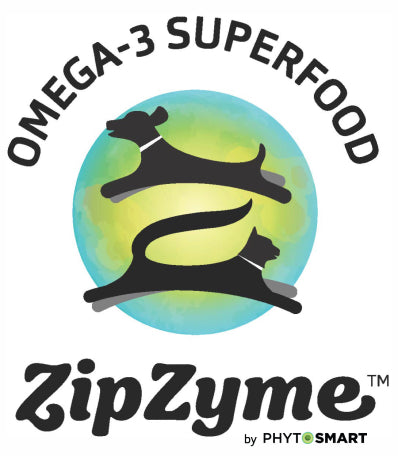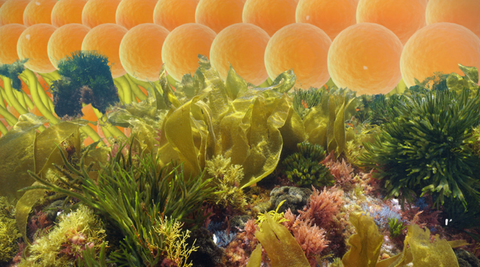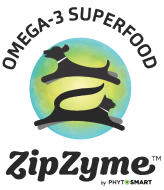In Part 1 of our overview of omega-3s, we discussed how these essential nutrients benefit your pet's health. This blog digs deeper into the science of omega-3s.
Decoding Omega-3s
In the pet nutrition world, omega-3 fatty acids have taken center stage, hailed for their many health benefits. However, navigating the complex terminology surrounding omega-3s can feel like drowning in an "alphabet soup" of names such as ALA, EPA, and DHA. These acronyms refer to different types of omega-3s, each with its unique role in promoting your pet's health.
Let's break it down.
DHA, the Omega-3 Superstar
All the omega-3s are essential components of your pet's diet, but DHA stands out as a superstar. DHA contributes to the structural development of the brain, including the growth of neurons and the formation of synapses – the connections between nerves.
DHA supports cognitive function and may play a role in enhancing learning and memory abilities, making it an essential nutrient for optimal brain health and function.
The Influence of DHA Form
DHA comes in different forms – free fatty acid, ethyl ester, triglyceride, or phospholipid – each affecting the body uniquely. Phospholipid DHA is exceptional due to its distinctive structure and how it interacts with cell membranes.
The body absorbs phospholipid DHA better than other forms, allowing it to quickly become integrated into cell membranes, especially in the brain and eyes. This integration supports cell structure and function, improving cognitive performance, memory, and vision. ZipZyme™ Omega is rich in phospholipid DHA.
Essential Considerations in Processing
Omega-3s are widely available as supplements, made using various processing methods. Some supplement makers crush the source material to extract the oil, while others use solvent extraction methods (including the use of chemicals like hexane), raising concerns about potential contamination and the presence of harmful chemical residues.
Extracted omega-3s are highly vulnerable to oxidation – the process that makes oils rancid. ZipZyme™ Omega is a whole-cell fresh food source of omega-3 DHA, which means it is resistant to oxidation.
Informed Omega-3 Choices
Providing your pet with high-quality omega-3s can contribute to their overall well-being, promoting healthy skin and a shiny coat and supporting their cognitive and joint function. By being informed about the different forms and sources of omega-3s, you can make better choices for your beloved furry companion's nutritional needs.
Sources:
About The Author

Teresa L. Johnson, MSPH, MA, RD, is a science writer and registered dietitian with extensive expertise in omega-3 fatty acids. She enjoys translating complex scientific literature into everyday language so people can make informed dietary choices – for themselves and their pets. When not immersed in research or writing, Teresa enjoys the company of her English cream golden retriever, Schatzi.



